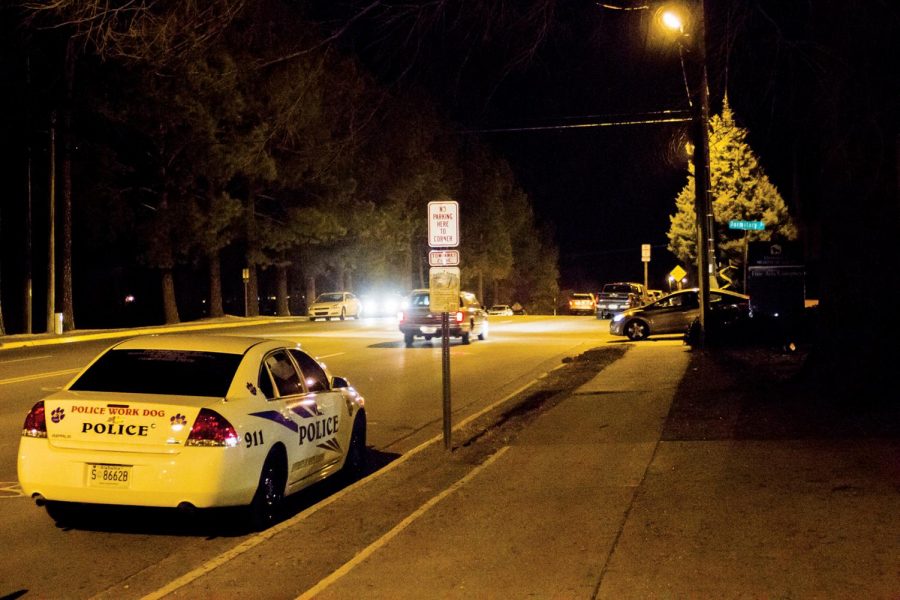Florence officials outline police interaction procedure
January 30, 2014
Many students may agree speed is fairly easy to accumulate on a vehicle. As soon as the red and blue flashing lights are in sight, what should be our next action?
Common courtesy tells us to turn the car off, roll the window down and fork over any information the cop is requesting. But, as free individuals, can we refuse to do so?
Refusing to give identification is against the law, said UNA Police Chief Bob Pastula.
“Driving is a privilege,” he said. “When you sign for a driver’s license, it’s like signing a contract and everyone has to follow the rules of that contract.”
The law of implied consent warrants you to comply to an officer’s request, Pastula said.
Implied consent refers to the condition agreed to when applying for a driver’s license, according to impliedconsent.org.
The law states when these forms are signed to obtain a valid driver’s license, there is an automatic agreement to comply with a police officer’s request to take a breath, blood or urine test should you be pulled over on suspicion of driving under the influence, according to the website.
If you do not comply with all the officer’s requests, you could potentially go to jail, Pastula said.
There is no specific law concerning not responding to an officer’s request, said Scottsboro attorney Parker Edmiston.
“However, if you were to just sit in the car and not communicate with the officer, he or she would probably arrest you,” he said. “You would be guilty of either obstructing a law enforcement officer or failure to obey a lawful command.”
Katlyn Shannon, a junior, said she thinks she should have the right to refuse any request.
“I can especially refuse if I was pulled over for something as common, typical and not at all suspicious like speeding,” she said. “It’s ridiculous to single out students and pedestrians based on a quota the officer has to meet.”
Programmer and web developer Tyler Yasaka said he has personally disobeyed law enforcement on one such occasion.
“One day, I was pulled over by a state trooper for not wearing a seatbelt,” he said. “Rather than complying, I kindly asked the policeman for permission to leave, since I was not harming anyone by not wearing a seatbelt. He refused my request, and I proceeded to drive away, asserting my right to take care of myself as a free individual.”
What followed was a very violent encounter with (several) police officers as they forced him to stop, yanked him out of the car, tossed him to the ground, put handcuffs on him and took him to jail, he said.
“The officer kept asking me, ‘Why are you doing all this for a simple seatbelt ticket?’” he said. “My response was, ‘Why are you doing all this for a simple seatbelt ticket?’”
Yasaka said while his behavior may have been rash, it does demonstrate one very important fact.
“Every single ‘harmless’ law that is written by the politicians that we elect into office comes with a less obvious side effect — violence,” he said. “Violent laws should never be applied to peaceful citizens, according to basic ethics.”












